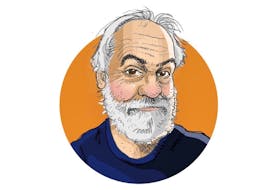Over the past few years, China’s diplomatic offensives, military coercion, interference and infiltration have continued unabated,” said Taiwan’s President Tsai Ing-wen on New Year’s Day, as the Jan 11 election neared. “China’s objective is clear: to force Taiwan to compromise our sovereignty.”
But every leader of her Democratic People’s Party (DPP) has always said that.
“Moreover, at the beginning of last year China’s President Xi Jinping proposed the one country, two systems model for Taiwan,” Tsai continued, as though it were some new horror. But every leader of Communist China since Deng Xiao-ping has promoted the one-country, two-system model.
What’s new here?
What’s new is that a year ago Tsai Ing-wen was universally seen as doomed to lose this election, but now she’s expected to win it hands down – and the reason is that Hong Kong, the territory for which the one-country-two-systems formula was originally invented, has been engulfed by chaotic and increasingly violent protests against Beijing for the past seven months.
The protests are driven by the belief of most Hong Kongers that the mainland Chinese regime is cheating on that sacred formula. When Britain returned its Hong Kong colony to Beijing’s rule in 1997, the two parties agreed that, for fifty years, the prosperous city-state could keep its existing more-or-less democratic system, including free speech, independent courts, and the full panoply of human rights.
Taiwan was promised the same terms if only it would ‘reunite with the motherland’. But early last year, only 23 years into the 50-year deal, Beijing forced the Hong Kong government to introduce a law making it possible to extradite Hong Kongers to face trial in mainland courts. And Hong Kong, so peaceful for so long, blew up in Beijing’s face.
Chinese Communist courts have a 99.9 per cent conviction rate and the police have a record of extorting confessions or manufacturing evidence. Hong Kongers saw the new law as a direct assault on their freedoms, and although the proposal was eventually dropped by a frightened HK government, the demonstrations have continued and intensified.
Now the protesters are demanding full democracy. They will never get that in Hong Kong, ‘two systems’ or not, because those ideas might then spread to the rest of China and undermine the Communist monopoly of power. Whereas the people of Taiwan have already had democracy for three decades, and they don’t want to lose it.
China is a monolithic, authoritarian surveillance state of 1.4 billion people, but just 130 km off its east coast 26 million Chinese people live in a society as democratic (and sometimes as turbulent) as Italy or the United States. Moreover, they have three times the per capita income of mainlanders. And the harder Beijing tries to gather Taiwan into the fold, the greater the support for Tsai’s pro-independence DPP.
Exactly one year ago, Chinese President Xi Jinping warned that Beijing “makes no promise to renounce the use of force and reserves the option of taking all necessary means” to achieve unification and implement “one country, two systems” in Taiwan. That was when Tsai began her electoral come-back: from thirty points behind the opposition Nationalist Party (KMT) then to twenty points ahead now.
The KMT was the ruling party that came out of the 1911 revolution that ended several thousand years of imperial rule in China. However, it lost a long civil war against the Communists in 1949, and at least a million of its senior members and its troops withdrew to Taiwan (which they ran as a dictatorship) to plan a comeback.
The KMT insisted it was still the legitimate government of all China, but the comeback never happened. By 1996, after a decade of reforms, it lost Taiwan’s first fully free election to the pro-independence DPP, and the two parties have alternated in power ever since.
The curious thing, however, is that neither party ever really comes down off the fence. The DPP never says outright that it would like to make Taiwan a separate and independent country. And the KMT never says that it would accept reunification under the ‘one-country, two-systems’ formula, just that it would like closer relations with the mainland.
That’s because the electorate would never vote for reunification with a Communist-ruled China, but Beijing would invade rather than allow Taiwan to declare independence. A recent opinion poll showed that 85 per cent of all Taiwanese voters support either the status quo or a declaration of independence, while only six per cent want reunification with China
There are other, mostly domestic issues in Taiwan politics, which is why the KMT sometimes wins, but whenever the main question is reunification with China the DPP wins easily. That’s why Tsai Ing-wen will win today’s election: nobody in Taiwan can ignore what is happening in Hong Kong.
Gwynne Dyer’s new book is “Growing Pains: The Future of Democracy (and Work).”
RELATED:









